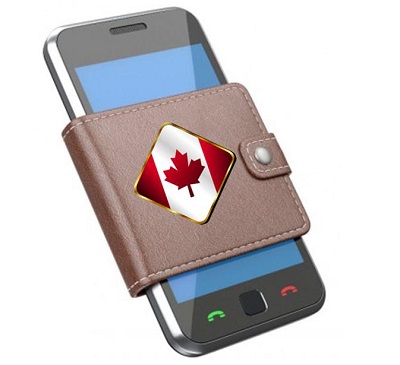While cash purchases are becoming less commonplace in Canada, it’s plastic, not smartphones leading the way.
A new Moneris report revealed that Canadian mobile payments enthusiasm is finally growing. The report’s prediction is that by 2013, only 10 percent of transactions in Canada will be made with cash. In 2014, that figure was still 35 percent.
Digital payment technologies such as mobile wallets will be greatly responsible for reducing cash use.
The 70 percent decline in cash purchases from 2014 through 2030 will be greatly the result of Canadian mobile payments adoption. The number of contactless transactions and mobile wallets in use will reduce the need to carry cash.
 The report indicated that one in four Canadians between the ages of 18 and 34 years old already prefer using a mobile wallet over cash or plastic. Comparatively, only 18 percent feel that way in the 45 to 54 year old age group. Among those from 55 to 64 years old, 10 percent prefer mobile wallets. For those aged 65 and over, only 6 percent would want to use their smartphones instead of cash or credit and debit cards.
The report indicated that one in four Canadians between the ages of 18 and 34 years old already prefer using a mobile wallet over cash or plastic. Comparatively, only 18 percent feel that way in the 45 to 54 year old age group. Among those from 55 to 64 years old, 10 percent prefer mobile wallets. For those aged 65 and over, only 6 percent would want to use their smartphones instead of cash or credit and debit cards.
That said, there remain some very specific barriers to Canadian mobile payments adoption.
Leger conducted a survey in which there were 1,516 Canadian participants. When asked why they would choose not to use a mobile wallet, 62 percent had their doubts about security. They said they would be more likely to use smartphones to make purchases if they felt confident in mobile security.
Moreover, 42 percent said they’d be interested in using mobile payments if there were more stores that accepted those transactions. Another 50 percent said they would be interested in using smartphone payments if it meant they could leave all their plastic loyalty cards at home.
The report also showed interest in some of the additional opportunities offered by Canadian mobile payments. For example 48 percent of those surveyed said they would use a mobile wallet if they were emailed a receipt. Furthermore, 46 percent said they would use it if all stores accepted the technology. Moreover, 41 percent said they would be interested in using them if they could also store their ID on their phones so they could leave their entire wallets behind. Another 35 percent said they would use mobile payments to pay for public transportation fare.

